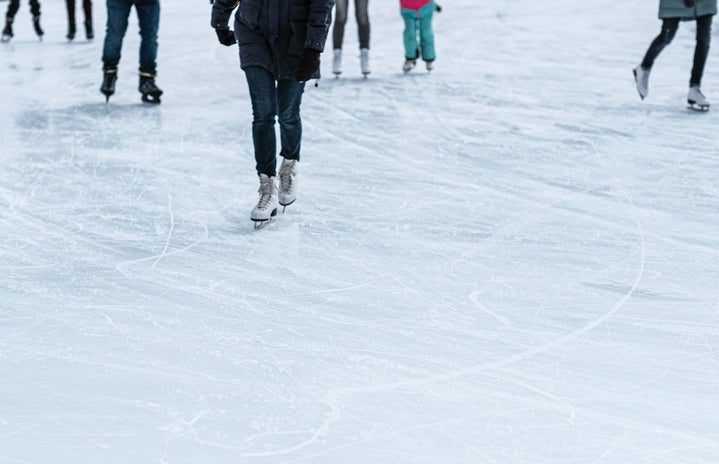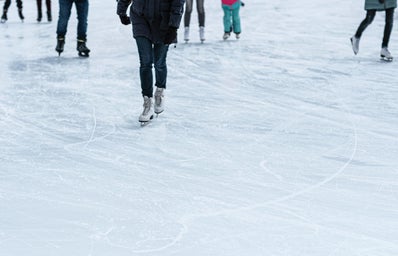At just 15 years old, Kamila Valieva, a Russian figure skater, was slated to be a frontrunner in the 2022 Beijing Winter Olympic Games. However, her name began popping up on social media posts, headlining news articles and was being talked about publicly by many Olympic athletes this past week – not because she won a medal, but because she became involved in a doping scandal.
After Russia won the figure skating team event, Kamila Valieva tested positive for a banned heart-medication that has performance-enhancing effects. As many people expected, she was suspended by the Russian Anti-Doping Agency (RUSADA) just a day after her drug-test results became public, and her fate as an Olympian quickly became dim. But her suspension didn’t last long. It actually didn’t even last for more than a day. The day after RUSADA suspended her, the Disciplinary Anti-Doping Committee revoked the suspension and the Court of Arbitration of Sports (CAS) gave her back her ability to compete in the next event.
Many people are both confused and angry about why Valieva is allowed to compete after clearly and publicly testing positive for a performance-enhancing drug that could give her an edge over other athletes. It seems like there is some sort of flaw in the system here that is supposed to deter athletes from taking drugs and to protect the fairness of the Olympic Games.
Here are some reasons why Valieva’s Suspension was canceled:
According to the CAS panel, the Stockholm laboratory that received her drug test, provided her results 44 days after they received them. The CAS believes that this is the fault of the laboratory and not Kamila Valieva. This being said, this drug test (that eventually tested positive) was taken long before the Beijing Games began. Apparently, she also took two subsequent drug tests on January 13th and February 7th that were both negative.
Valieva is also a minor. This makes things more difficult. The lawyers involved in this scheme pointed out that after investigation, she may only face a reprimand rather than a suspension because she is only 15 years old. This means that they don’t want to suspend her now and bar her from competing for a medal if she won’t be suspended in the long run. While protecting minors from responsibility for things that aren’t wholly in their control, this also creates a very blurry line. It’s hard to decide whether Valieva should be punished for taking this drug to enhance her own performance, or whether the authority figures around her are the ones who should be reprimanded for likely coercing her. This being said, it’s clear that minor athletes need more protection.
A conclusive result about whether or not she ingested the heart-medication “by mistake” or whether this really is a doping scheme has yet to be found. Apparently, Valieva and her family are claiming that her positive test might actually be a result of contamination through sharing food, dishes, glasses, etc. with her grandfather who is on the same heart-medication that was found in her system. There hasn’t been any evidence to support this claim. It seems very far-fetched.
The CAS panel is claiming that “none of this is the fault of the athlete.” They stated that she is in a really tough position because her lifetime of work is being threatened to be taken away. However, this seems to be a very flawed argument. There have been many athletes before who have tested positive for drugs and then been barred from the Olympic Games without this same consideration. No matter the age or situation, when an Olympic athlete tests positive for drugs, their entire lifetime’s worth of work is effectively being washed down the drain. It doesn’t make sense to me why this is a consideration of the panel when it seems like they are just stating the obvious. This doesn’t give justification to the panel to revoke her suspension just because she worked hard. If this were the case, no Olympic athlete would ever be suspended from the Games because of drugs.
Amid this doping-scheme, Sha’Carri Richardson, a former Olympic track athlete, has been brought back into the limelight. In the 2021 Tokyo Summer Olympic Games, she tested positive for THC, and was quickly barred from running in her events. According to NPR, both THC (the drug found in Richardson’s system) and trimetazidine (the heart-medication found in Valieva’s system) can both be found on the World Anti-Doping Agency’s list of prohibited substances. However, THC doesn’t have the same performance-enhancing effects that trimetazidine does. Apparently, the heart-medication boosts endurance and blood efficiency, while THC does neither of these things. Many people even believe that THC/cannabis shouldn’t be banned because there is little scientific evidence to back up that it is performance-enhancing. So, after hearing this, you would assume that Valieva would be more likely to be banned from competing than Richardson, but this wasn’t the case. The opposite actually happened.
Sha’Carri Richardson tweeted about this, commenting on how their positive tests were handled differently. She tweeted, “Can we get a solid answer on the difference of her situation and mine? The only difference I see is I’m a young black lady.” This tweet brings up the legitimacy of how race plays a role in how athletes are being treated and marginalized in the Olympic Games. Richardson’s tweet points out what looks like an unsettling inequity in how athletes are treated based on their race and skin color.
Other Olympic athletes and figure skaters have spoken out about their feelings on this scandal. Adam Rippon, a former U.S. Olympic figure skater said that allowing Valieva to compete is a “slap in the face” to other athletes. He believes that it’s unfair and unjust for Valieva to compete. Another former figure skater, Johnny Weir, said that the decision to allow her to skate is “devastating for [the] sport.” The Olympic community has overwhelmingly been against the CAS’s decision to allow her to compete.
After Valieva’s suspension was canceled and she was allowed to compete again, she stepped onto the ice for her short program and performed impressively putting her in the number one spot. However two days later, she competed in the individual figure skating competition and fell multiple times during her routine. Her mistakes were reflected in her score and she dropped to fourth place, conveniently right under the cusp of receiving a medal and being on the podium. If she were to place on the podium, because of the doping-scandal, there would have been no podium celebration. Rumors have been floating around that she purposely was instructed to mess up her routine so that she wouldn’t get a medal and wouldn’t bring even more scrutiny onto the scandal. It’s also possible that the stress from the scandal got to her and affected her performance. Either way, her not placing is convenient for Russia. There is now less incentive for people to scrutinize the legitimacy of her performance, and there is no chance that she will be stripped of an individual medal in the future.
The 2022 Beijing Winter Olympics are soon coming to an end, but I’m confident that Kamila Valieva’s doping-scandal will stick around for a while after the closing ceremonies.

